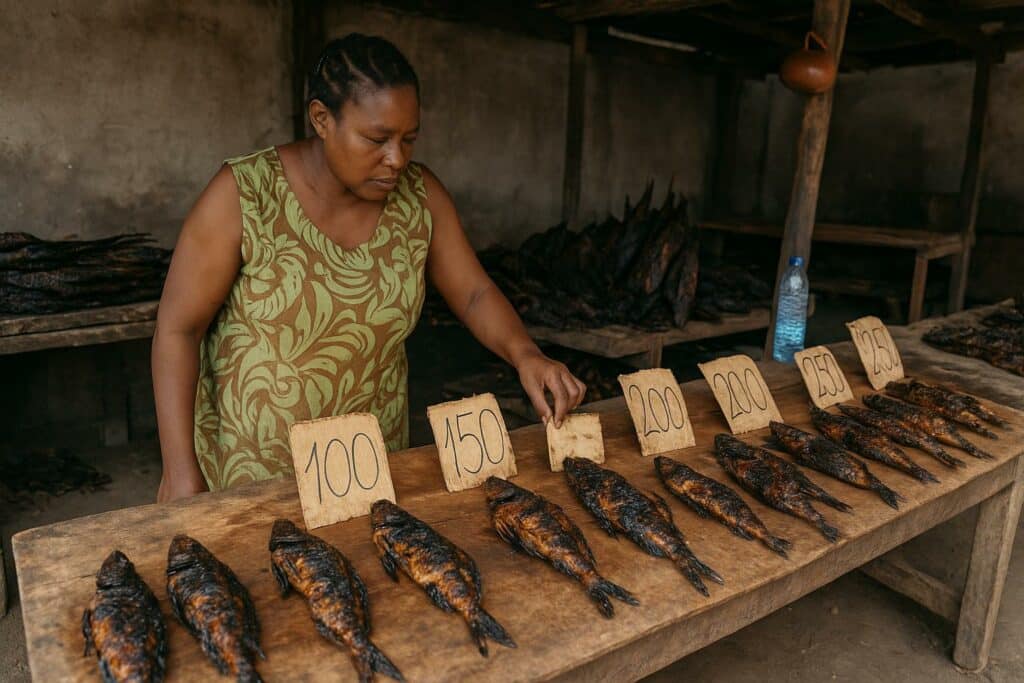A decisive fiscal signal amid imported inflation
The Congolese cabinet has opted for what Finance Minister Jean-Baptiste Ondaye terms “a shock-absorber of immediate effect”. In a circular disseminated on Sunday, Brazzaville ordered the suspension, for twelve months, of customs duty, IT levies and value-added tax on a basket of everyday foodstuffs and agriculture-related inputs. Wheat, refined vegetable oil, frozen meats, sea fish, rice, powdered milk, fertilisers, livestock feed and certified seeds now cross the national border duty-free. The customs director-general has been mandated to translate the ministerial instruction into operational procedures at ports and inland posts.
Although modest in fiscal magnitude when set against Congo’s hydrocarbon receipts, the measure is symbolically powerful. It publicly aligns the treasury with household purchasing power at a moment when global commodity prices, jolted by the conflict in Ukraine, have filtered through to Pointe-Noire’s docks and Brazzaville’s markets.
Strategic commodities placed under safeguard
The policy architecture singles out items that structure Congolese food security. Wheat and rice underpin urban diets; edible oil is a determinant of caloric intake; proteins derived from imported poultry and pelagic fish compensate for the still-limited domestic livestock sector; fertilisers, seeds and animal feed are indispensable to the government’s ongoing effort to convert up to twelve million hectares of arable land into productive acreage.
In fiscal terms the suspension of border taxes on these imports effectively functions as a direct price subsidy, because duties normally add between eight and twenty per cent to the landing cost. By legally erasing that margin, the authorities expect wholesalers and retailers to align shelf prices downward within weeks, a timeline viewed as credible by consumer-rights advocate Mermans Babounga, who nonetheless cautions that “affordability will ultimately hinge on transport fees and competitive behaviour along the supply chain”.
Stakeholders welcome relief yet press for logistics reforms
Civil-society organisations, import syndicates and chambers of commerce have greeted the circular as a first tangible outcome of the government’s broader resilience plan launched earlier this year. That blueprint seeks to shield vulnerable groups from external shocks while fast-tracking the diversification of an economy still driven by crude oil.
However, professional unions repeat that logistics costs must fall if the fiscal relief is to be fully transmitted. The National Road 1 corridor linking Pointe-Noire to the capital stretches a little over five hundred kilometres yet hosts seven toll stations. Transporters estimate that cumulative tolls represent up to ten per cent of the freight bill for a thirty-tonne truck. “Tax exemptions at the port can be neutralised by fees on the asphalt,” notes one haulage executive reached by phone.
Between self-sufficiency ambitions and import dependence
The paradox of Congo-Brazzaville is manifest: despite enviable agro-ecological potential, the republic still imports foodstuffs worth an official five hundred to seven hundred billion CFA francs—up to one billion euros—each year. Successive governments have pledged to reverse this structural trade gap; the present administration frames the tax holiday not as a substitute for agricultural reform but as a temporary firewall while acreage is brought under cultivation and local processing capacity is scaled up.
Economists point out that an import-waiver of limited duration can, in parallel, free up working capital for agripreneurs who currently face high input costs. Whether the measure will catalyse domestic supply over the medium term will depend on complementary actions such as rural road rehabilitation, extension services and credit guarantees.
À retenir
A one-year suspension of customs duties and VAT covers a strategic basket of staples and farm inputs. The initiative forms the fiscal backbone of the national resilience plan and is expected to ease retail prices within weeks, provided transport charges along the Pointe-Noire–Brazzaville corridor are also contained.
Le point juridique/éco
The circular draws its legal force from the ministerial prerogatives granted under the Customs Code to adjust tariff schedules in circumstances deemed of national economic interest. By limiting the waiver to twelve months, the decree conforms to fiscal-discipline provisions in the 2024 Finance Act, ensuring that Parliament retains oversight when an eventual renewal is considered. From a macro standpoint, foregone revenue is likely to be offset by higher VAT receipts on non- exempt goods and by continued dynamism in the oil sector, preserving the budget’s primary balance.
Outlook: calibrating temporary relief into lasting resilience
Implementation will be closely scrutinised by consumer associations eager for prompt, visible price declines. The customs service, for its part, must prevent the re-exportation of exempted goods towards neighbouring markets, a risk in a region characterised by porous borders. Success on both fronts would not only attenuate the current cost-of-living squeeze but also enhance public confidence in the state’s capacity to deploy agile, well-targeted economic instruments. In this sense, the one-year tax holiday could emerge as a laboratory for future policies aimed at combining fiscal prudence, social protection and the gradual unlocking of Congo’s substantial agricultural promise.

